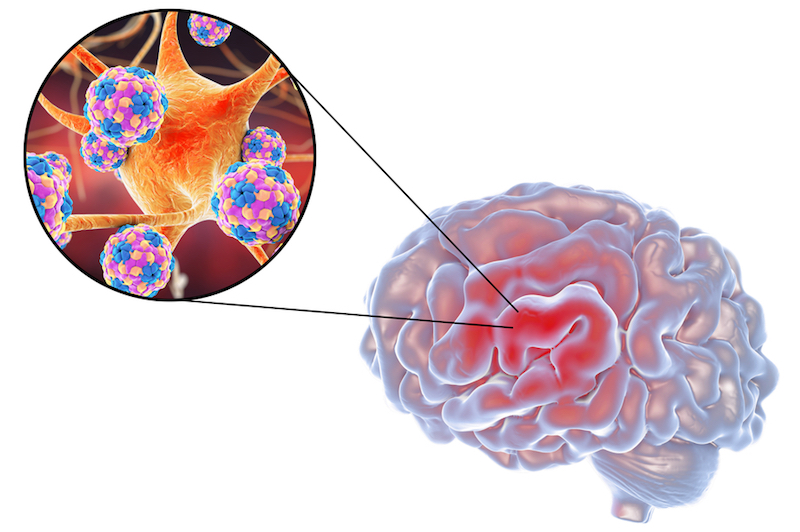GeNeuro has released Phase IIb data showing that its antibody can reduce brain damage in patients with multiple sclerosis by going after an unusual target: a virus that has been in our genome since ancient times.
Paris-based biotech GeNeuro has reported that a treatment it is developing in partnership with Servier has potential to treat multiple sclerosis. In a Phase IIb trial with 270 patients in Europe, those treated with the antibody GNbAC1 had 29% less shrinking of the brain’s volume after a year compared to those treated with a placebo. They also had 63% less “black holes” — areas of the brain with permanent and irreversible damage.
Contrary to what one might expect, the antibody did not show effects on inflammation levels in the brain — the main target of current treatments against multiple sclerosis. The reason is that GeNeuro goes after a completely different target: a human endogenous retrovirus, or HERV for short.
HERVs infected humans in ancient times, inserting their DNA into ours. Nowadays, up to 8% of all our DNA comes from these viruses. Although most of their genes have mutated and are no longer functional, there is a pathogenic protein produced by this DNA that has been consistently found in the autopsies of patients with multiple sclerosis.
GeNeuro’s stock is up by 25% after the announcement, though still not anywhere near where it was before last August when GeNeuro’s stock went down by a massive 65% when it announced no significant effects of the drug after 6 months. It had to wait until a year of treatment in order to show significant results.

“We’re not directly impacting the immune system, like immunomodulating or immunosuppressive drugs,” CEO Jesus Martin-Garcia told me. “We’re neutralizing a pathogenic protein, so it may take longer for the effect to be seen on inflammatory markers.”
GeNeuro is the first to ever show a treatment that targets an endogenous virus to be effective, perhaps opening a new path for new approaches to treat disorders of the central nervous system, since similar endogenous retroviruses have been linked to cases of schizophrenia, ALS and Alzheimer’s.
Images via HelloRF Zcool, Kateryna Kon /Shutterstock





